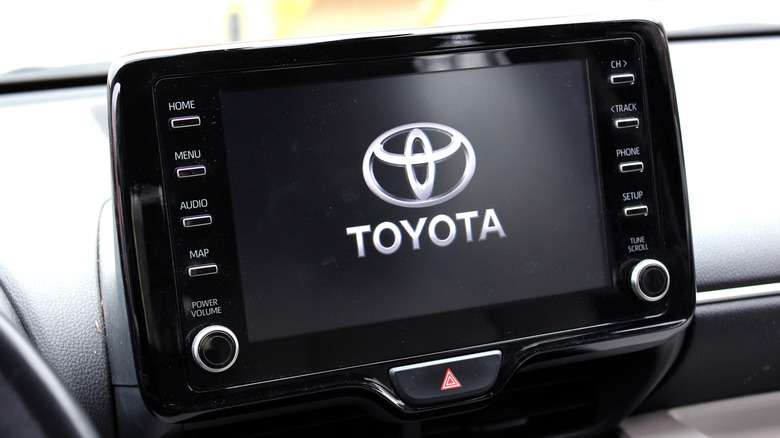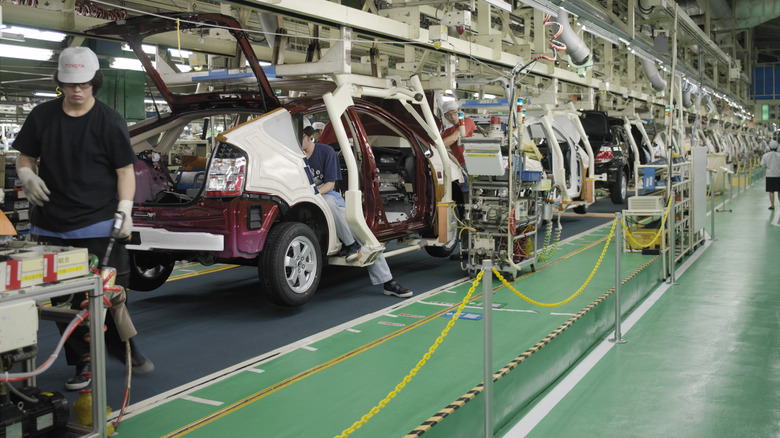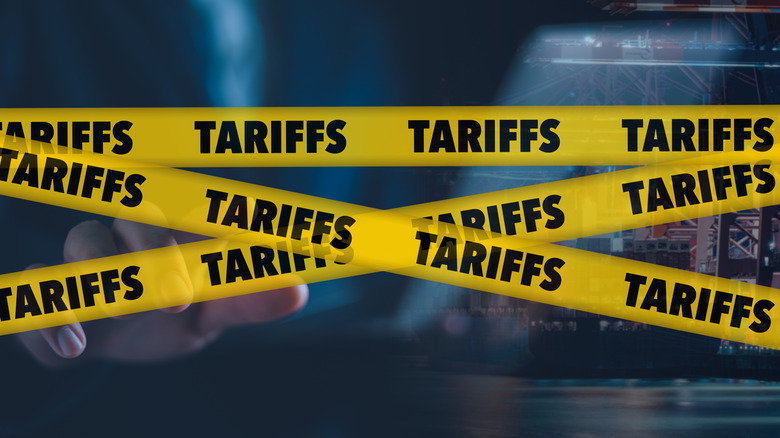Will Toyota Be Affected By Tariffs Imposed By President Trump?
President Donald Trump made many promises during his campaign leading up to the presidential election in November 2024, one of which was increased tariffs. It's a promise he has kept and it didn't take long for the Japanese automaker to feel pressure from the tariffs. In February 2025, the president announced his intention to impose 25% tariffs on imported goods from both Mexico and Canada, where Toyota has assembly plants for the Rav4 and Tacoma. Only a couple days after the announcement, however, he agreed to a 30-day pause. President Trump went on to impose 25% tariffs on all imported automobiles and their components in March, hoping to cultivate American manufacturing. Tariffs on imported vehicles took effect on April 3.
Toyota announced it would continue with business as usual despite tariffs, focused on bringing down fixed costs rather than raise vehicle prices, according to Reuters. That's no easy feat because it's not just the levy on imported automobiles that hits the automaker. It's also the tariffs on steel, aluminum, and electronic components, driving up the cost of manufacturing even for American-based companies.
It all comes down to where Toyota makes its automobiles
With the United States being Toyota's largest market in 2024, buying around two million vehicles from the automaker, it seems like it could take a potentially significant hit from additional taxes. However, from the Tundra to the Corolla, there are many Toyota models that are made in the USA. Toyota also has plants that build necessary vehicle components in the U.S., improving matters for both the automaker and its consumers. It builds engines in its Alabama, Kentucky, and West Virginia plants while aluminum castings are made in its Missouri and Tennessee plants. The Alabama plant also manufactures other powertrain parts and powertrain parts.
Then there's Toyota's first North American plant in Long Beach, California, which produces steering columns, catalytic converters, weld sub-assemblies, sheet metal, and aluminum components. While the Toyota vehicles produced in the United States won't see as much of a price increase as imported vehicles –unless they rely on imported parts– Toyota has plants in Japan, Canada, Mexico, and Austria. If the automaker is unsuccessful with keeping prices where they're at, it could end up admitting it's affected by the president's tariffs like Subaru.
It's not just consumers these tariffs affect. Resident and sushi restaurant owner named Nobuo Ogura in Toyota City, Japan, told the Washington Post, "If car sales go down, the economy in the area will also be dragged down. Workers in the auto industry here will see lower wages, and they will spend less." Toyota is integral to the economy in and around the city.
What's happening with the tariffs now?
President Trump had been threatening tariffs since before he found himself back in the oval office. His first executive order to impose tariffs was signed on February 1, adding 10% on all imports from China and 25% from Canada and Mexico. Once the two North American countries made strides to strengthen their borders, there was a 30-day pause, but the tariff on Chinese imports remained. There were a couple instances of back and forth after February, but the tariffs on imported automobiles and vehicle parts have remained in place. The biggest levy on tariffs came in April.
On April 2, 2025, otherwise referred to as "Liberation Day" by the administration, Trump announced 10% tariffs on all countries and an even higher percentage for those that had a trading surplus with the United States. China received an additional 34% charge. Additionally, Taiwan was imposed with a 32% tax, the European Union imports received a 20% tariff, 25% for South Korean imports, and the big one that affected Toyota was the 24% tax on Japan. Those all took effect on April 9 and caused markets to meltdown. The administration put a 90-day pause on all tariffs except those imposed on China roughly 13 hours later.
This has caused China to retaliate with its own tariffs on American imports. As of this writing, there is a 145% tax on Chinese imports and other nations like the EU have suspended their reciprocal levies, placing hope in negotiations.


